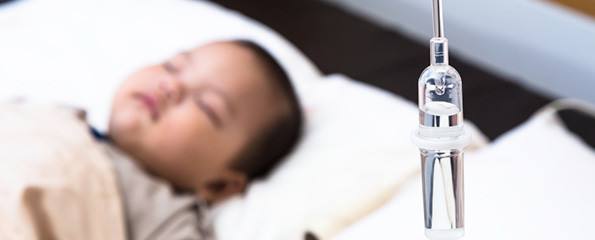General anaesthesia has no adverse effect on infant brain development
Anaesthesia in infancy has shown no adverse neurodevelopmental outcomes in children by the age of two, a new international study, published today in world-leading medical journal The Lancet and led by Murdoch Childrens Research Institute, has shown.
There has been growing concern in the medical community about the safety of the medicines used for anaesthesia and sedation in young children. This concern is based on animal research that demonstrated long-term, possibly permanent, injury to the developing brain caused by exposure to these medicines. This injury results in abnormalities in behaviour, learning, and memory in animals. Until now the effects of exposure to anaesthetic drugs in young children was unknown.
The international study, which is the first study of its kind in the world to investigate this issue involved over 700 infants who were either given a general anaesthetic or awake regional anaesthesia during a hernia operation. Children were then followed up at two years of age and assessed.
Children were given a range of tasks assessing their attention, memory, language skills and memory. Family and medical history were taken into account and children also underwent a neurological and physical examination.
“This is the first definitive evidence to show that just under an hour of anaesthesia exposure in early childhood does not appear to cause long term neurodevelopmental changes by age two,” lead researcher Associate Professor Andrew Davidson said.
“This is the strongest evidence to date that just under an hour of general anaesthesia in infancy does not result in significant neurotoxicity.”
The study was conducted from 2007 until 2013 and involved 28 centres worldwide including hospitals in Australia, the US, the UK, Italy, the Netherlands, Canada and New Zealand and was supported by the Anaesthesia and Pain Medicine Foundation of the Australian and New Zealand College of Anaesthetists, of which Associate Professor Davidson is a Fellow.
Whilst the outcomes are positive at two years of age, researchers emphasised that children will need to be reassessed at age five to ensure that negative neurological effects are not seen later on. Researchers plan to follow up children again at five years of age to reassess neurological outcomes.
(Source: Murdoch Childrens Research Institute, The Lancet)
Dates
Tags
Created by:

 Login
Login














